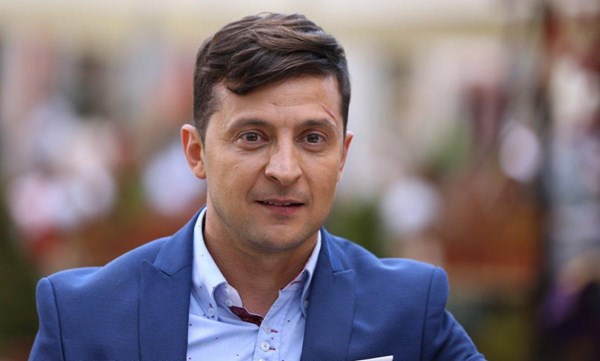Ukrainian President Zelensky has three main steps planned for ‘de-occupation’ of Crimea
Anton Korynevych, Ukrainian President Volodymyr Zelensky’s permanent representative to Crimea, named three primary steps that will be taken towards the restoration of the annexed peninsula to Ukraine, reports UNIAN news agency. In particular, there are laws that are important to Crimeans which need to be drafted.
“We are really trying to become the organ that drafts the bills that are necessary for Crimea and Crimeans. Some initial work has already been done. We look forward to distributing it,” Korynevych said at a press conference.
According to him, the bills being developed by the president’s representatives to Crimea will concern the protection of Crimeans’ rights and will exclude discriminatory provisions.
Korynevych stressed the priority of this aspect. The second step to be taken by Zelensky’s team will involve information policy and communication with Crimeans.
“It’s important to raise the topic of Crimea both in our national media and to influence and be accessible in the temporarily occupied territory,” he remarked.
He explained that children are growing up in Crimea without any ties to Ukraine due to Russia’s annexation of the peninsula, and this necessitates cultural and educational initiatives.
The third priority set by the president’s team is the protection of human rights.
“This could be assistance in obtaining a passport or temporary accommodation and other things,” he explained.
The construction of the Chonhar and Kalanchak border checkpoints on the administrative border between mainland Ukraine and annexed Crimea is currently being finalized.
In February 2014, armed people in uniforms without insignias appeared in Crimea and captured the Supreme Council of Crimea, the Simferopol Airport, the Kerch ferry crossing and other strategic objects, and prevented the Ukrainian army from taking action. Initially, the Russian government refused to acknowledge that these armed people were Russian soldiers, but President Vladimir Putin later admitted it.
On 16 March 2014, a referendum on the status of Crimea was held in Crimea and Sevastopol, in which the inhabitants supposedly voted for the peninsula to become part of Russia. The outcome of the so-called referendum is not recognized by Ukraine, the EU or the US. On 18 March, Putin announced the “annexation” of Crimea to Russia.
International organizations have declared the annexation illegal and condemned Russia’s actions. Western countries have imposed economic sanctions on Russia in connection with the annexation. Russia claims to have “restored historical justice”. Ukraine’s parliament, the Verkhovna Rada, declared 20 February 2014 the start of Russia’s temporary occupation of Crimea and Sevastopol.
